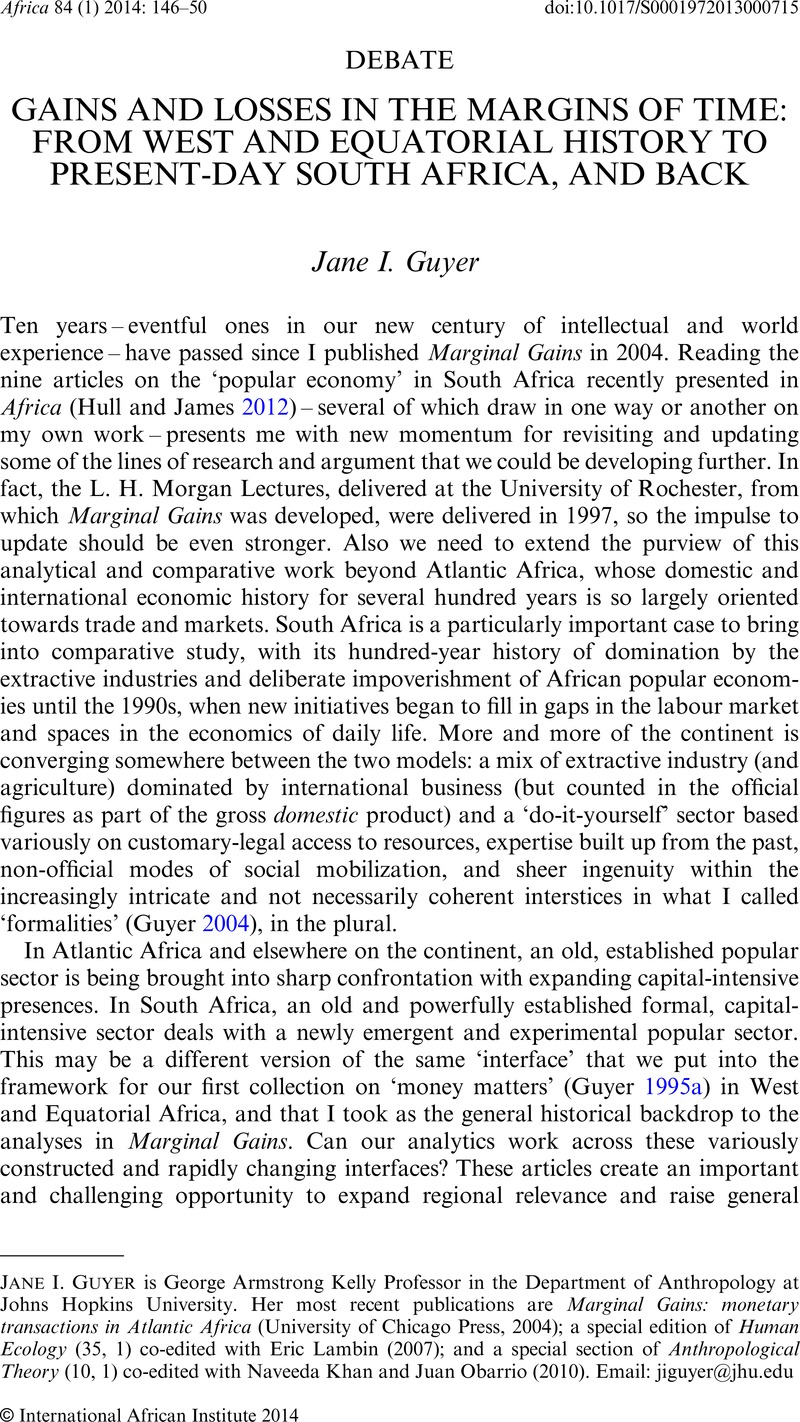Crossref Citations
This article has been cited by the following publications. This list is generated based on data provided by Crossref.
Vibert, Elizabeth
2016.
Gender, resilience and resistance: South Africa’s Hleketani Community Garden.
Journal of Contemporary African Studies,
Vol. 34,
Issue. 2,
p.
252.
Bolt, Maxim
2017.
Making workers real: Regulatory spotlights and documentary stepping-stones on a South African border farm.
HAU: Journal of Ethnographic Theory,
Vol. 7,
Issue. 3,
p.
305.
Salifu, Jovia
2021.
Economic Change and Occultic Sika Bone: Market Women’s Responses to Increased Financialization in Ghana.
African Studies Review,
Vol. 64,
Issue. 4,
p.
938.
Saraç-Lesavre, Başak
2021.
Deep time financing? ‘Generational' responsibilities andthe problem of rendez-vousin the U.S. nuclear waste programme.
Journal of Cultural Economy,
Vol. 14,
Issue. 4,
p.
435.
Maazaz, Ismaël
2024.
Pushcarts and Fountains: Masculinity, Agency and Labour Culture among Water Workers of N'Djamena, Chad.
Development and Change,
Vol. 55,
Issue. 5,
p.
1051.
Gidron, Yotam
2024.
Survivalist mobilities: freedom of movement and the economic lives of settlement refugees in Uganda.
Journal of Refugee Studies,



